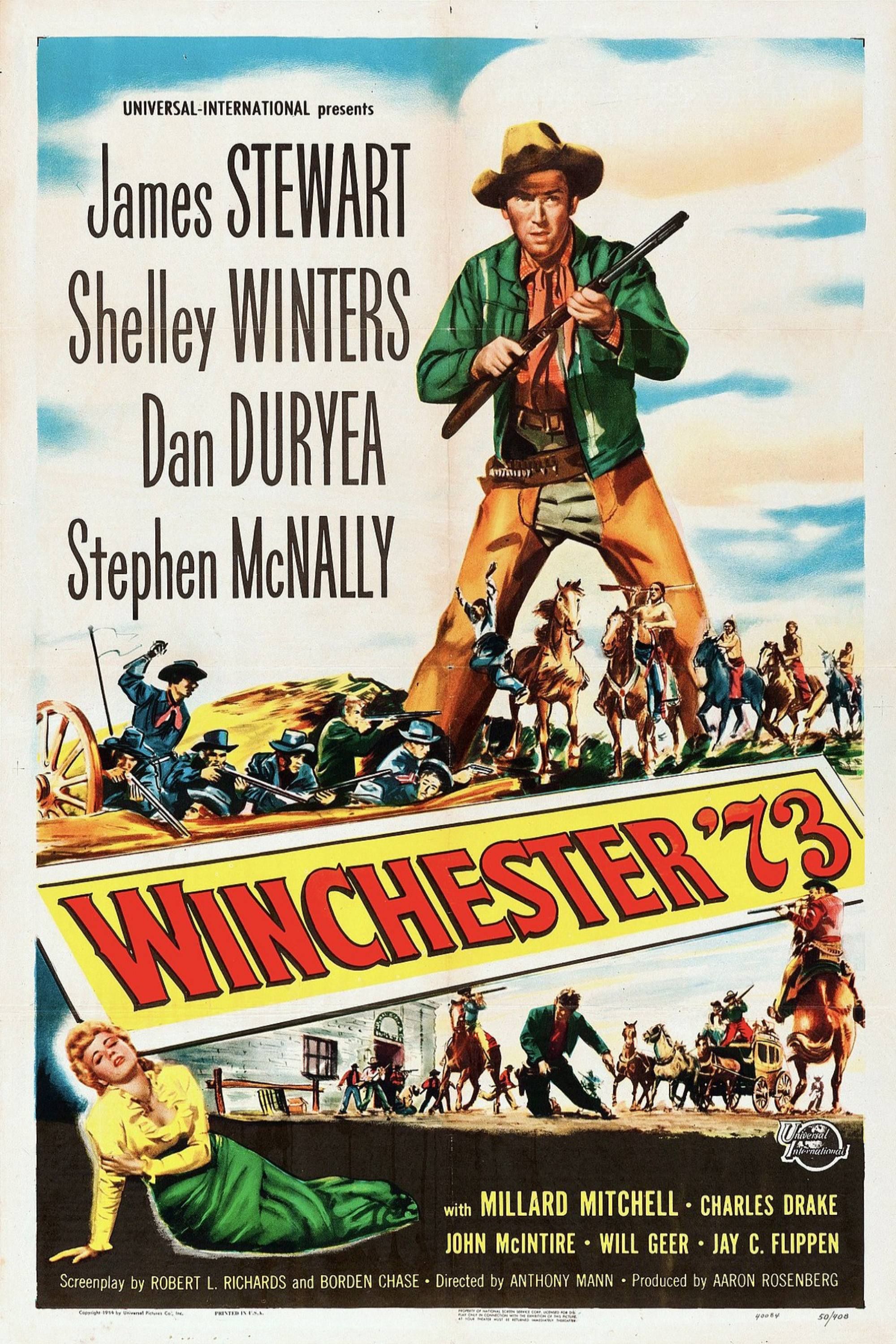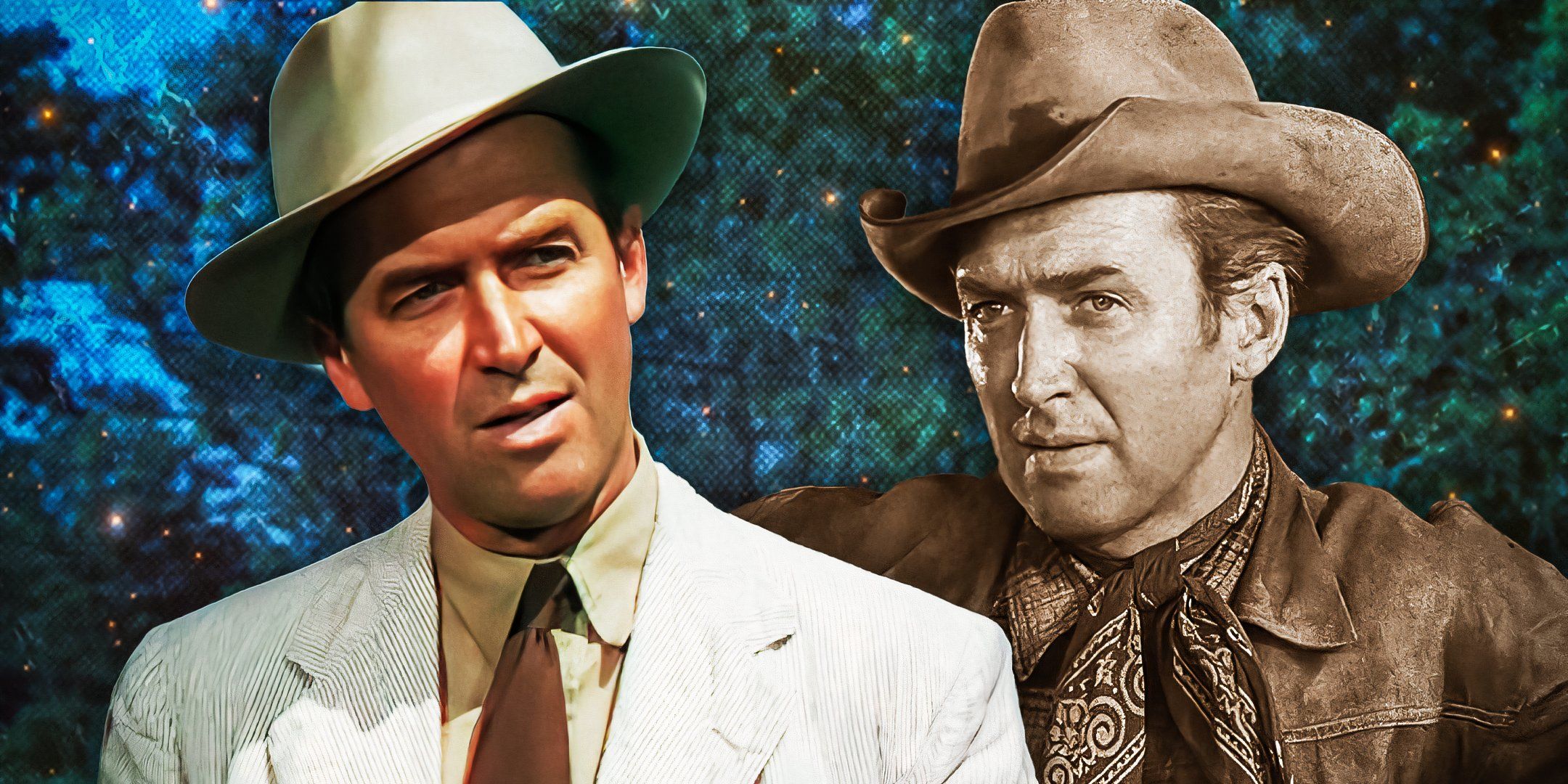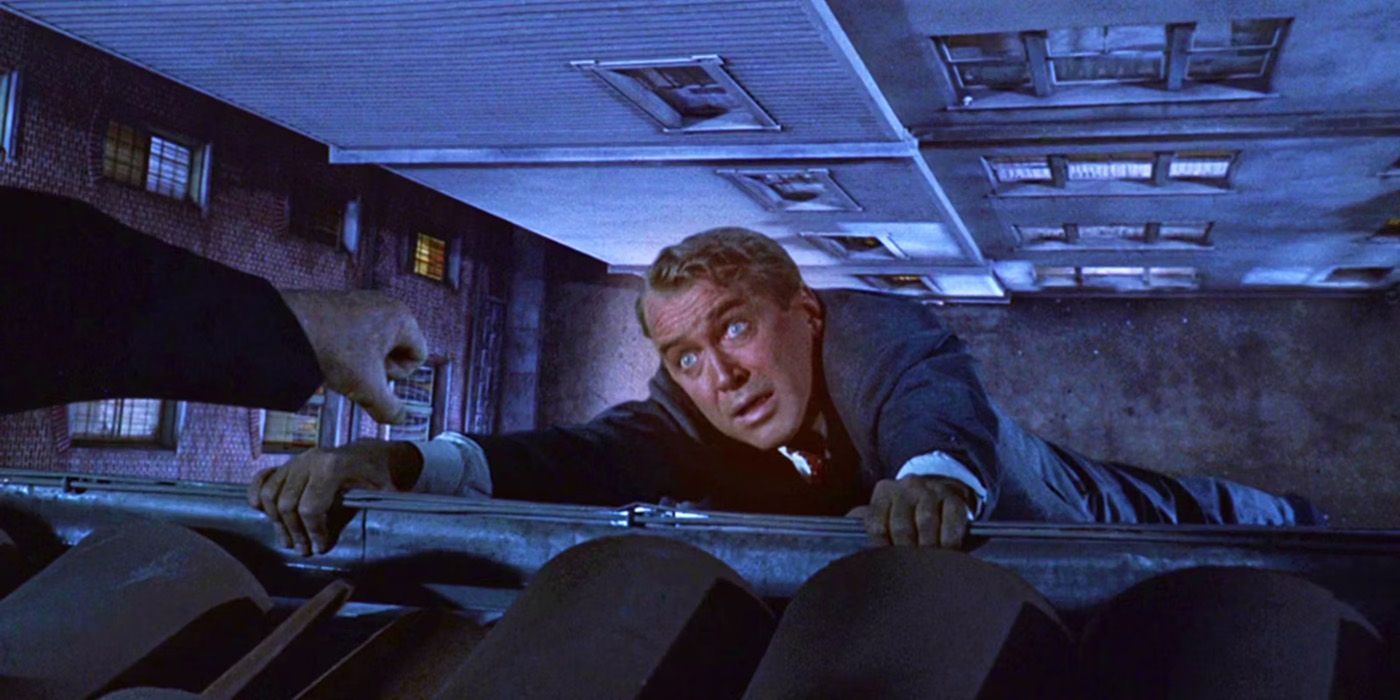While James Stewart is remembered as one of the defining actors of the Golden Age of Hollywood, it was the 1950 Western Winchester ‘73 that he credited with saving his career. Known for his distinctive drawl and likable, everyman demeanor, in his early career, Stewart was typecast as an innocent, moralistic, all-American in classic movies like Mr. Smith Goes to Washington and It’s A Wonderful Life. It’s true that these early films have stood the test of time, but they only represent one facet of Stewart’s cinematic persona.
Many of the best James Stewart movies came later in his career, after he had proven to audiences his talent for portraying darker, more morally ambiguous characters in Westerns like Winchester ‘73. It was roles like this that opened the doors for Stewart’s acclaimed collaborations with director Alfred Hitchcock, as he consistently pushed the boundaries of his reputation through complex characterizations. As a defining actor of the 20th century, Stewart’s career changed massively after Winchester ‘73, and the film represented a before-and-after moment for the star.
Winchester ’73 Revitalized James Stewart’s Acting Career
It Was the First Of Eight Movies Stewart Made With Anthony Mann
James Stewart built up his reputation as a major Hollywood actor throughout the 1930s, and by 1940, he had already earned an Academy Award for Best Actor for The Philadelphia Story. However, Stewart’s reputation for portraying likable, morally upright everymen was both a blessing and a curse because moviegoers always thought they knew what to expect from the star. That was until Winchester ‘73 saw him embrace more morally ambiguous characters.
Related
All 8 James Stewart Movies Directed By Anthony Mann, Ranked
All the 8 movies starring James Stewart and directed by Anthony Mann, from westerns to other genres, ranked from the best to the least impactful.
Stewart himself described Winchester ‘73 as “a desperation move that proved a lifesaver” (via Cowboys & Indians.) As a film that opened new avenues for the kind of stories Stewart could tell, Winchester ‘73 was not only his first Western movie since Destry Rides Again 13 years prior, but also pushed the boundaries of what audiences could expect from the star. It’s interesting to note that there was a clear dividing line in Stewart’s career, as his role became much more mature following his time serving in the U.S. Army Air Forces during World War II.
Stewart was the first star to negotiate a deal to earn a sizeable percentage of the movie’s profits in lieu of a large upfront salary.
Set in 1876, Winchester ‘73 told of the journey of a prized rifle from one ill-fated owner to another and how a cowboy’s obsession with the stolen gun kicked off a bullet-ridden odyssey across the Old West. This was the first of eight collaborations between the actor and director Anthony Mann. Not only did Winchester ‘73 represent a breakthrough for Stewart from a performance point of view, but its financial background actually changed Hollywood forever, as Stewart was the first star to negotiate a deal to earn a sizeable percentage of the movie’s profits in lieu of a large upfront salary.
Winchester ’73 Showcased A Side Of James Stewart That Was Always There
Stewart’s Earlier Roles Also Hint At His Darker Side
While Winchester ‘73 was a turning point for James Stewart’s career that would lead to later roles such as in Rear Window and Vertigo for Alfred Hitchcock, there were hints at his darker side in early performances. Take It’s a Wonderful Life for example. While this film is a beloved holiday classic that countless viewers watch every holiday season, George Bailey’s plans to commit suicide on Christmas Day were also deeply troubling, and the holiday cheer that many associate with the film was balanced with deeply serious themes of grief, personal loss, and dissatisfaction.
However, there was also a clear dividing line that occurred in the post-war years, with director Martin Scorsese even stating, “If the pre-war Stewart stood for something essentially American,” then “the post-war Stewart stood for something truly universal.” Scorsese added, “It’s difficult to think of another American star who remade his own image so thoroughly, or so bravely.” In a career filled with some truly iconic roles, Winchester ‘73 may not be James Stewart’s best-known part, but it was certainly among the most important as it paved the way for all that was to follow.
Source: Cowboys & Indians

Winchester ’73
- Release Date
-
July 12, 1950
- Runtime
-
92 Minutes
- Director
-
Anthony Mann
- Writers
-
Robert L. Richards, Borden Chase, Stuart N. Lake


